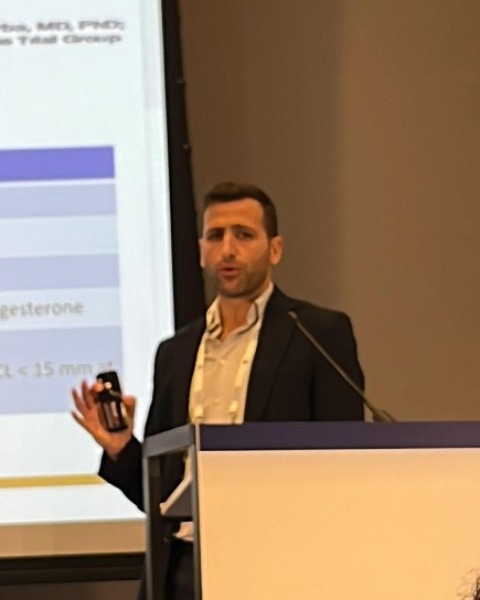Computers
Poster Session 4
(1104) Personalized Machine Learning Model for Predicting Time to Delivery in Active Labor

Lee Reicher, MD (she/her/hers)
Resident
Lis Hospital for Women's Health, Tel Aviv Sourasky Medical Center
Tel-Aviv, Israel
Emmanuel Attali, MD
Lis Maternity Hospital, Department of Obstetrics and Gynecology, Sourasky Medical Center, Tel Aviv University
Tel Aviv, Israel- sN
sharon Napadenski, PhD
Ben Gurion University of the Negev
Beer-Sheva, HaDarom, Israel - NR
Nadav Rappoport, PhD
Ben Gurion University of the Negev
Beer-Sheva, HaDarom, Israel - YY
Yariv Yogev, MD
Lis Hospital for Women's Health, Tel Aviv Sourasky Medical Center
Tel Aviv, Israel, Israel
Primary & Presenting Author(s)
Coauthor(s)
Prolonged labor has significant associations with an increased rate of operative delivery and adverse maternal and neonatal outcomes. To optimize resource management, physicians should assess and predict the course of labor. We aim to develop a personalized machine learning model using real-time data to predict time to delivery in the active phase of labor.
Study Design:
Labor records from a single university affiliated tertiary hospital with approximately 12,500 deliveries annually were analyzed over a 10-year period. We trained logistic regression models using both "static features" (e.g demographics) and "dynamic features" (e.g cervical dilatation, efficacy, and newly derived features calculated as ratios between adjusted dynamic measures and time differences) to predict time to delivery (min). To assess the explainability of the model, we employed SHAP (SHapley Additive exPlanations) analysis.
Results:
- A total of 94,386 cases in which a trial of labor was attempted were identified. Of them approximately 70,000 cases were admitted to the active phase of labor (6 cm dilatation).
- Histogram-Based Gradient Boosting regressor trained on the dataset with the demographic, static, dynamic, and aggregative features achieved higher results in terms of overall MAE and R2 metrics than a baseline of Lasso linear regression model: The model scores were mean absolute error of 62.64, and R2 0.51.
- Next, we present a residual box plot focusing on the time range between 0-120 minutes to labor (Figure).
- Explainability of the best model was analyzed using SHAP. SHAP provides insights into the "why" behind a model's decisions, making it easier to interpret and trust the model's results. The features that contributed the most for the model prediction were: current cervical opening rate, maximal cervical opening rate and clinical fetal weight estimation.
Conclusion:
Our personalized machine learning model holds promise in predicting time to delivery during active labor using real time data, aiding physicians in making informed decisions and potentially improving outcomes.

